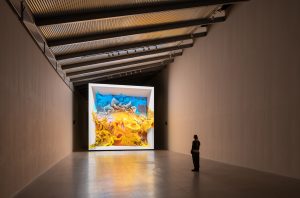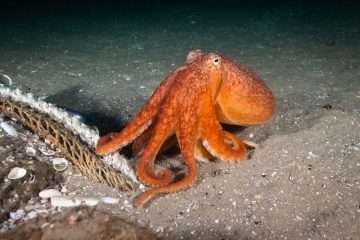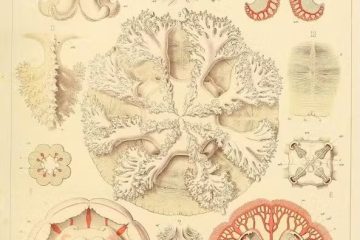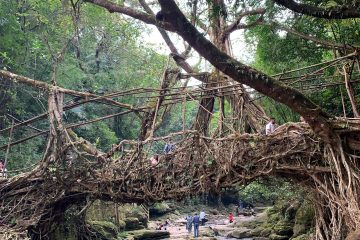Change Comes from the Arts

The relational turn is in full swing. More and more people realize that thinking in strict categories, or even binaries, lies at the roots of the planetary crisis we’re finding ourselves in. It is particularly the European heritage of toxic binaries of nature–culture, human–nonhuman, and mind–body that has legitimized, in its many variants, the regimes of exploitation that globally manifest as patriarchy, colonialism, and capitalism. While critiques of these regimes of exploitation have a long history, it is only recently that we see a general reorientation across academic disciplines and societal locations.
A new look at the human place within the web of planetary life is gaining momentum, strongly inspired by non-European and Indigenous philosophies. Instead of regimes of separation and mastery, we now emphasize concepts such as relationality, entanglement, and dependency when describing human knowing and being in the world. Terms come to the fore that better capture this idea of relational becoming, such as “kinship,” “relational animism,” or “nonhuman agency.” What is more, the traditional organization of knowledge that reifies in individual “disciplines” and, more generally, in the distinction between the “humanities” and the “(natural) sciences,” is on its way out. It is replaced by cross-disciplinary and even non-disciplinary fields such as the environmental humanities, biosemiotics, and critical posthumanities.
One of the most interesting features of these new developments is the realization that our ways of knowing are always entangled with political and societal responsibilities. Acknowledging our “situated knowledges” leads to new forms of accountability that include stakeholders and agents in the more-than-human world. The already perforated line between academic ways of knowing and an activist approach to planetary life is becoming more porous. This has been recognized in many initiatives at university level that attempt to create new platforms of expertise. Examples in Europe include “MESH” at the University of Cologne, Germany, and related international collaborative programs. In 2008, Linköping University, Sweden, initiated “The Posthumanities Hub,” which describes itself as “a platform for postdisciplinary reinventions, environmental humanities and more-than-human humanities in action.”
Such institutional changes at individual locations are encouraging developments. However, universities as publicly funded institutions are so strongly interconnected with neoliberal political and economic structures that a radical reorientation in our knowledge production cannot be expected to happen within universities anytime soon. Theories come from the universities, but they are put into practice elsewhere, often in experimental forms of collaboration between scientific research, the arts, and social and environmental activism.
Berlin is a good place for these experimental investigations. The Haus der Kulturen der Welt (HKW), for instance, links contemporary art to critical debates. From 2013–2022, HKW investigated how the planetary transformations of the Anthropocene can be understood, experienced, and shaped. In a multitude of exhibitions, installations, conferences, workshops, performances, and publications, HKW explored the cultural, socio-economic, and political implications of the new planetary reality. The activities resulted in an “Anthropocene curriculum,” which in 2023 turned into the “Anthropocene Commons,” facilitating a network of researchers, educators, activists, artists, and scientists from all over the world. “Commoning here not only means creating shared spaces, but also turning institutions inside-out to make research available to frontline communities and collaboratively creating pedagogies with and for diverse perspectives.”
Or take the Floating University Berlin, which describes itself as a “natureculture learning site.” Established in 2018 at the rainwater retention pool of former Berlin Tempelhof airport (hence the name “floating”), it explores new ways of gaining knowledge (hence the crossed-out “university”) as a relational project that connects humans to the more-than-human world and troubles the distinction between nature and culture.
In all these initiatives, the arts are playing a vital part. Contributions from literature and the visual arts are a decisive means in our attempt to create a world that differs from the traumatic conditions we’re living in.
Art makes the unthinkable thinkable; it exposes the seemingly paradoxical to new forms of entangled becoming.
Examples abound in music, art, and literature. On this blog, Sara Michieletto has presented the initiatives “Artists for Plants” and “Emotion for Change,” and I reported on Jakob Kudsk Steensen’s 2021 immersive installation “Berl-Berl” in Berlin. Let me add a few current examples, coming from my situated knowledge in Europe.
In its “Nature_Future” program, the ARKEN Museum in Copenhagen, Denmark, explores questions such as: “What are the ethical, aesthetic, and climate consequences of human’s position in nature and development of technology? And how can art help us think, sense, and act in this field?” Included in the program is Refik Anadol’s “Nature Dreams” installation. Anadol, born in Turkey in 1985, created an impressive entanglement between machine, human, and nature. What we see on a 7 x 7 meter “data sculpture,” accompanied by music, is indeed the result of a process of relational becoming: Anadol started with millions of “nature” images that are freely available on the internet, subsequently processing them with a computer program based on artificial intelligence. The algorithms create abstract and constantly changing images that only exist in the machine and yet contain the living fabric of reality outside the machine.
If you have the chance to visit London in the next weeks, don’t miss the work of nine artists in the immersive exhibition “Shifting Landscapes,” organized in collaboration with the Emergence Magazine. “As natural rhythms detach from their familiar contours,” the curators say, “it becomes clear that our present ways of being in relation with the living world cannot hold. Within our shared grief at this unfolding destruction, a space is opening, beckoning us to remember that we are not—and have never been—separate from the enfolding Earth.”
While in London, you can also visit “The Shape of a Circle in the Mind of a Fish,” which is a multi-year, interdisciplinary festival and research project, curated by the Serpentine Galleries, as part of their “General Ecology” project. These gatherings “bring together a wide range of thinkers and practitioners from various disciplinary ambits across art, literature, environment, science and technology to explore the porous boundaries between human, non-human animal, vegetal, mineral, fungal and artificial consciousness and intelligence.”
I draw a lot of hope from these initiatives. They are an indication that we still have a chance to break out of the iron cage of exploitative and extractive regimes of human domination. The change that these artists envision—in conversation with new ways of thinking, being, and knowing in the world—is not just a fantasy about the future. It is part of the Earth’s transformation we’re experiencing right now.
#
Kocku von Stuckrad is one of the co-founders and co-directors of Counterpoint: Navigating Knowledge. As a Professor of Religious Studies at the University of Groningen (Netherlands), he works on the history of religion, science, and philosophy in Europe and North America. His most recent book is A Cultural History of the Soul: Europe and North America from 1870 to the Present (Columbia University Press). He lives in Berlin.
Counterpoint blogs may be reprinted with the following acknowledgement: “This article was published by Counterpoint: Navigating Knowledge on 28 November 2023.” The views and opinions expressed on this website, in its publications, and in comments made in response to the site and publications are those of the author(s) and do not necessarily reflect the views and opinions of Counterpoint: Navigating Knowledge, its founders, its staff, or any agent or institution affiliated with it, nor those of the institution(s) with which the author is affiliated. Counterpoint exists to promote vigorous debate within and across knowledge systems and therefore publishes a wide variety of views and opinions in the interests of open conversation and dialogue.
Photo credit: Refik Anadol, Nature Dreams, 2021. Courtesy mabu.eth, © Refik Anadol Studio. ARKEN Museum of Modern Art. Foto: David Stjernholm. Download from the ARKEN Museum website.




1 Comment
Introducing “Mitwelt” Ethics - Counterpoint: Navigating Knowledge · October 14, 2024 at 6:28 PM
[…] hold in the sciences and the arts that challenges the primacy of human beings. What I call the “relational turn” has transformed our understanding of concepts such as “agency,” “entanglement,” or […]